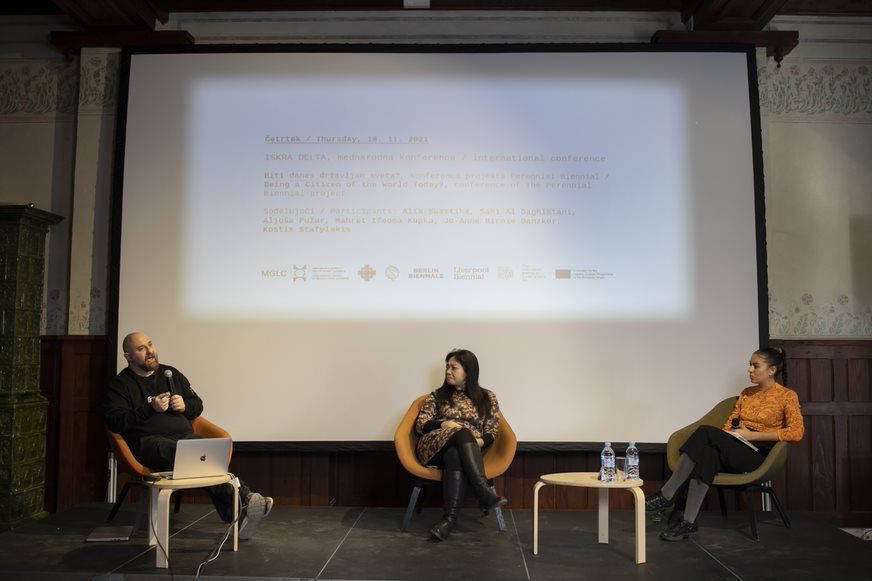Thursday, 18 November 2021
View part 1 of the conference here
View part 2 of the conference here
View part 3 of the conference here
MGLC Švicarija, creative and residential centre, Ljubljana
The title of the conference is based on the title of the dialogical lecture given by the contemporary cosmopolitan thinker Anthony Kwame Appiah in 2012 at Princeton University. Part of the so-called new cosmopolitanism current of thought, Appiah adapted the ancient idea of cosmopolitanism about the world as a cosmos, which began with the ancient Greek philosophers and lasted until the Enlightenment and Kant, to the dilemmas of contemporaneity, and, in the context of an increasingly globalised world, posed the question of whether to conform the values of all the world's cultures to an absolute moral code or to merely find a middle ground, which Appiah also proposes.
Generally, cosmopolitanism is the ideology of the equality of all people, which assumes that all people are citizens of the world. Through the global interconnectedness of the contemporary world, and the spread of liberal capitalism, the idea of cosmopolitanism has grown and become ubiquitous, including in the field of contemporary art, where biennials and other large-scale cyclical exhibitions have become the main arena of liberal cosmopolitanism. Biennial cosmopolitanism has been linked above all to postcolonial discourse and universal humanist values: equal opportunities for all, solidarity, hospitality, human rights, critique of global capitalism. At the same time, the idea of cosmopolitanism has often been criticised as a cover for enabling and spreading the same global liberalism and capitalism. In her critique of the new cosmopolitanism, for example, Chantal Mouffe has pointed out that the problem lies in the very idea of cosmopolitan democracy and in Kant's abstract universalism. Mouffe, of course, does not oppose transnational solidarity and reciprocity, but according to her, it would be necessary to abandon the possibility of the existence of a world "beyond hegemony" and to work towards the multipolarity of the world order with different cultures and values. Such critical thoughts have increasingly also been a necessary part of the discourse on biennials, in which the universal humanist values, positive in themselves, nevertheless obscure the view of political and ideological backgrounds.
Today, the new cosmopolitanism, after the experience of a global pandemic that has yet to be resolved and which, it seems, will thoroughly shake up the art world, will have to be transformed into another form of cosmopolitanism.
Participating:
Alia Swastika, Sami Al Daghistani, Aljoša Pužar, Mahret Ifeoma Kupka, Jo-Anne Birnie Danzker, Kostis Stafylakis
Conference concept: Nevenka Šivavec
Organizing Committee:
Nevenka Šivavec, Dušan Dovč (MGLC/Ljubljana Biennale of Graphic Arts)
Sam Lackey (Liverpool Biennial of Contemporary Art)
Ingrid Haug Erstad (Bergen Assembly)
Gabriele Horn (Berlin Biennale for Contemporary Art)
Anastasia Blokhina (Riga International Biennial of Contemporary Art)
Support: The Creative Europe Programme of the European Union
Click on the link below for more information.
